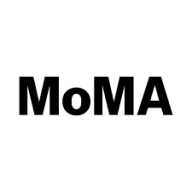Every time news breaks, especially news involving race, I watch the same cycle.
First, everyone rushes to form an opinion. Then they take to social media to yell this opinion to the world.
And then, almost inevitably, I will have to unfriend someone.
Is this the real life? Is this just fantasy?
I don’t like when people claim social media platforms like Facebook and Twitter aren’t “real.”
Because of those platforms, we are now privy to the thoughts of our best friends, coworkers, distant family and that guy you met once at a bar. Real thoughts and opinions that a real person typed on a real keyboard that showed up on my real screen.
Not all opinions are created equal. Not all opinions are valid. Some opinions aren’t even really even opinions.
The average Facebook user has about 300 friends and will only interact with 150 or so on a regular basis, according to a Pew Research Center survey. I have 2,215 friends.
There was a time, in my never-ending quest to be well-liked, where I very rarely declined a friend request.
Most of my Facebook friends are other comics. A lot of them are performers I’ve only met once or twice. Some people are complete strangers who might have been in the audience at a show I was on. This makes for “opinions” on my timeline. Do I need to know how Random Guy in Wisconsin feels about race relations in America?
“But aren’t you going to create an echo chamber? How will that make the world a better place?”
It won’t. But my news feed will be a better place.
A way to stay in control
As a black, queer woman, the real world is already challenging enough. Why suffer fools online when I have the ability to tailor my experience?
I have no obligation to invite “dissenting opinions” into the intimate spaces I share with real friends and family, especially when said “opinion” is at best, not supported by fact and at worst, rooted in denying my humanity. How long until ill-informed yet cocksure hot takes turn from mildly annoying to potentially harmful?
After the premiere of the new “Ghostbusters” film, comedian and actress Leslie Jones received a flood of racist and sexist tweets so vile she briefly deactivated her Twitter account. For every story like Jones’s that makes the headlines, there are countless other minorities afraid to read the next notification.
I’ve always been vocal, both online and off, about my alignment with the #BlackLivesMatter movement. So if we’re friends, Facebook or otherwise, and you want to say #AllLivesMatter, we’re no longer friends.
Still believe in the myth of “black-on-black” crime? Unfriend.
If black people would just learn to respect themselv…” BLOCK!
These are intellectually lazy arguments dipped in racism. As much as I’ve tried to engage with people, I’ve come to realize anyone using these arguments is not looking to have a genuine discussion in the first place.
I’m no longer in the mood to debate senseless, debunked points. These so-called conversations are wholly unproductive and emotionally draining. I no longer wish to entertain them.
I was asked recently by a reporter at a protest “Where can black people go to be safe?” It’s hard to say.
I can’t control the whole world. But I can control who is on my social media. I will do what I can to remain safe there. That may mean losing long-time friends, but I can’t realistically call anyone my friend who denies my humanity and reality.
Elsa Waithe is a comic and activist who lives in Brooklyn.
This is amExpress, the conversation starter for New Yorkers.This is part of an occasional series of guest amExpress columns. Have a story you want to share? Email samuel.guzik@newsday.com.



































